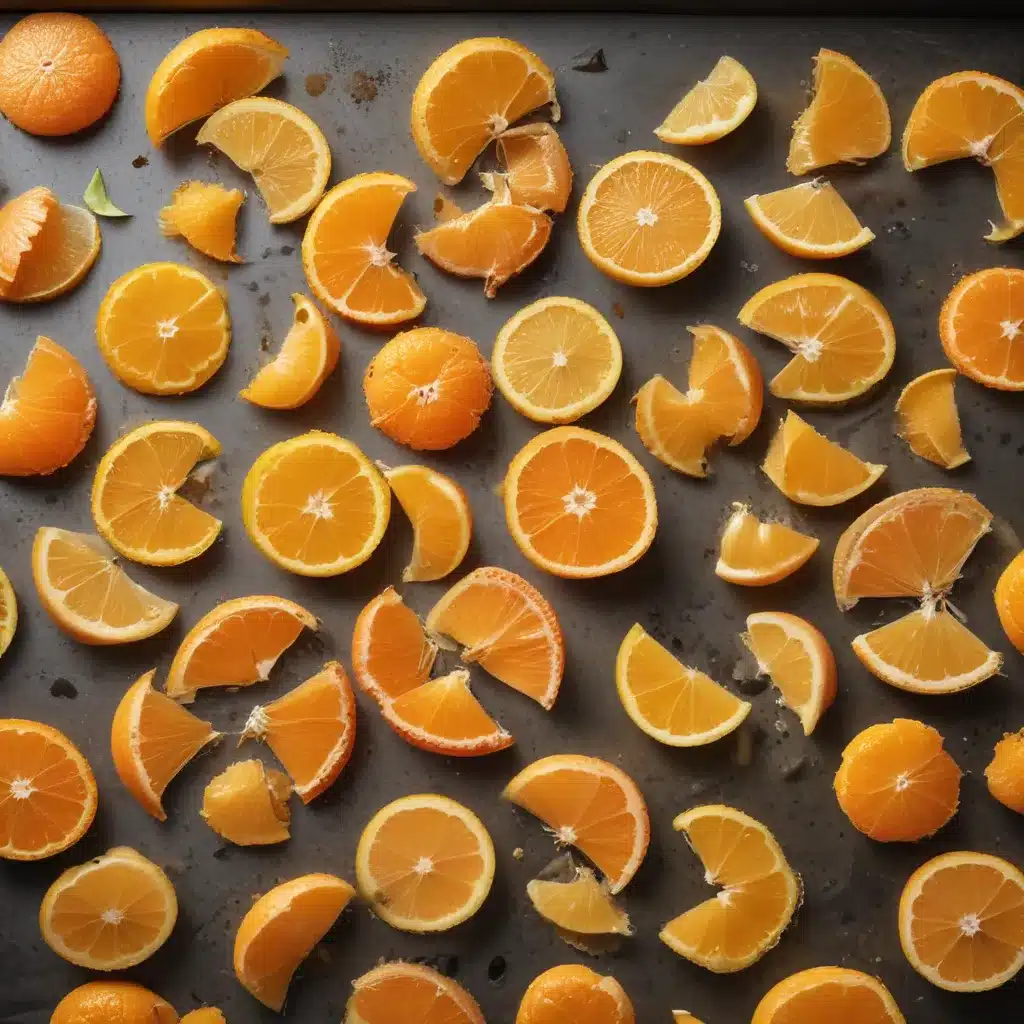The Scents of My Past
I’d love to say that the smell I associate most with my restaurant days is something pleasant and alluring – the bright grassiness of fresh-picked herbs, the sweet-sharp scent of onions collapsing in a giant pan, or the smoky aroma of sizzling bacon. But to be honest, the smell that most transports me back is something far less appetizing: the acrid, nauseating stench of bleach.
Scrubbing down the counters and floors with that chemical-laden cleanser was the last task I had to complete before clocking out and sidling up to the bar for my shift drink. While I relished the finality of the gesture, the chlorine-laced odor always overpowered the delicious smells of whatever had been cooked that night. Now, as a home cook unbound by the draconian rules of the health department, I avoid harsh commercial cleansers like the plague.
Why would I spray anything that needs a Poison Control sticker near the food I eat and the tools I use to prepare it? Instead, a simple spray bottle filled with diluted distilled white vinegar has become my go-to for cleaning countertops, tables, and refrigerator shelves. Growing up, I remember my great aunt Geneva (what a name, right?) using the stuff to clean her entire house. Studies show it’s nearly as effective a disinfectant as those chemical-based solutions, and it’s dirt cheap to boot.
The Power of Citrus
The one downside to cleaning with vinegar? It can make your house smell a bit like a fish and chips joint. Not that there’s anything wrong with that, but it’s a little on the sharp side for my tastes. Enter: citrus vinegar.
I started making this magical elixir last year after receiving a ten-pound shipment of gorgeous mandarins, navels, and satsumas direct from a farm in Ojai, California. Instead of pitching the peels straight in the garbage after one of my post-dinner citrus binges, I started saving them in a big glass jar in the fridge. Once the jar was full, I added enough of my trusty distilled white vinegar to cover the peels, screwed on the lid, and let it sit on the countertop for a week or so.
The result was nothing short of transformative. Infused with all the glorious citrus oils trapped in those peels, the sharp, one-note vinegar was transformed into liquid sunshine. Well, that’s a little bit of an exaggeration – it still smelled like vinegar, just really, really aromatic, citrus-y vinegar. And it beat the pants off of bleach.
I funneled the orange-tinted liquid into a spray bottle, diluted it 50/50 with water, and have been a devotee ever since. These days, I start a new batch whenever I pick up one of those wooden crates of clementines that you’ll find in supermarkets in the winter. Saving the peels – making sure they don’t have any fruit left on them, which can turn the vinegar sticky – in a jar in the fridge ensures I’ll have enough citrus vinegar to keep the kitchen fresh all year long.
A Fresher Fridge
But what about that other kitchen staple, the humble refrigerator? It turns out that citrus peels can work their magic there, too. All you need to do is cut an orange, grapefruit, lemon, or lime in half, thoroughly remove the fruit, and then fill the empty shell with salt.
The salt absorbs and neutralizes odors, while the citrus peel lends its clean, fresh scent to the stale air of your fridge. Just place the salt-filled shell in a bowl and tuck it into a corner. No need to even peel the fruit – the shell alone is enough to work its deodorizing magic.
And if you really want to take things to the next level, you can dry the peels and use them to make all sorts of other household cleaners and fresheners. Lemon peel powder makes a great natural abrasive for scrubbing sinks and countertops, while dried citrus peels can be used to make a fragrant, all-natural air freshener. The possibilities are endless!
A Cleaner, Fresher Future
As much as I miss the camaraderie and high-octane energy of the restaurant world, I don’t miss the constant whiff of bleach. These days, my kitchen is a sanctuary – a space filled with the warm, inviting scents of citrus, herbs, and the occasional waft of sizzling bacon. And it’s all thanks to the humble citrus peel.
So next time you peel an orange or squeeze a lemon, don’t toss those peels in the trash. Save them up, let them work their magic in a vinegar solution or a salt-filled shell, and enjoy the fresh, fragrant rewards. Your fridge (and your nose) will thank you.
And if you’re ever in the Nottingham area, be sure to check out the team at Adam Cleaning – they know a thing or two about keeping things fresh and clean, with or without the help of citrus peels.







